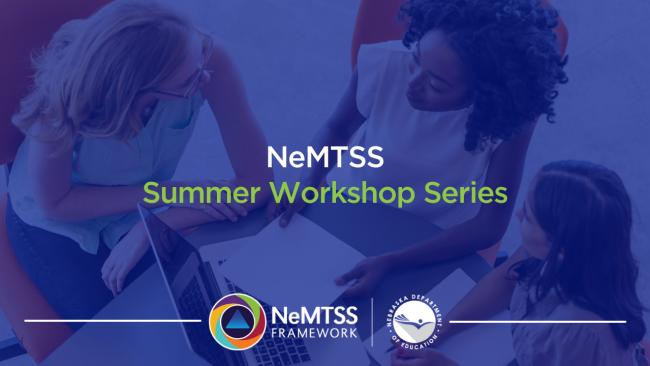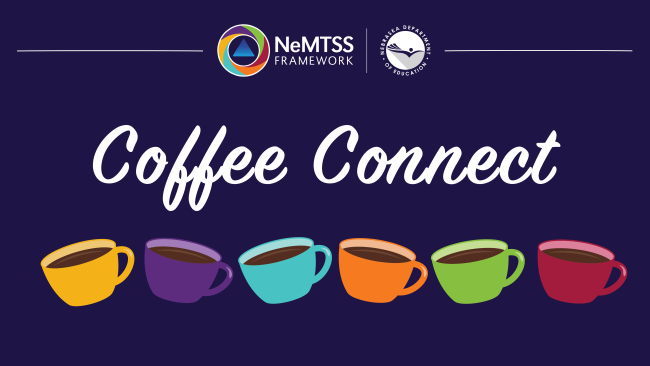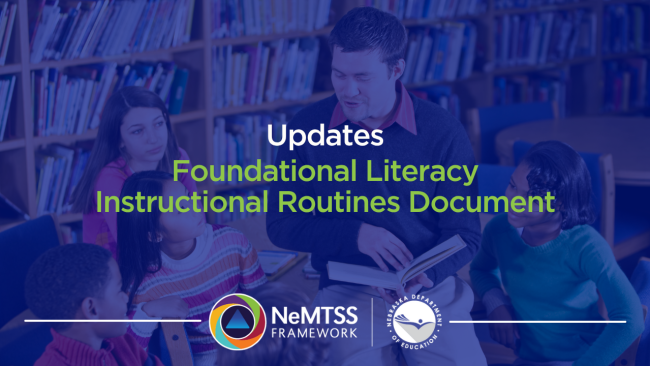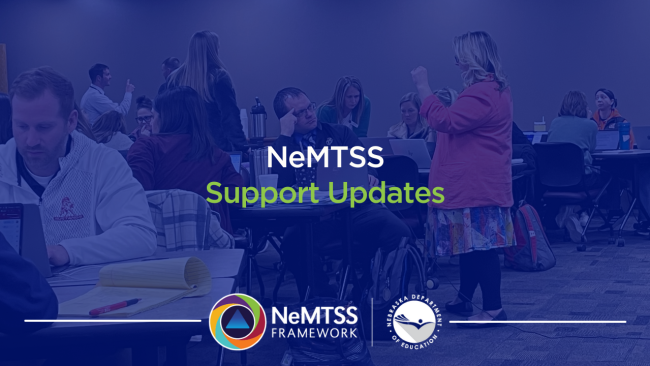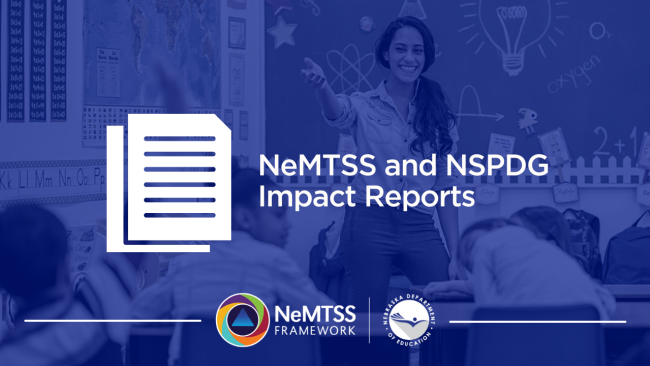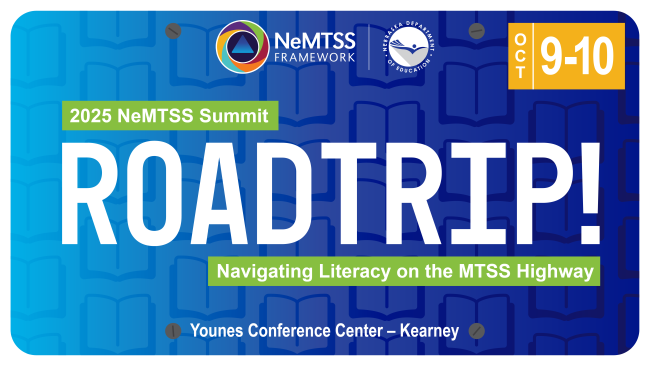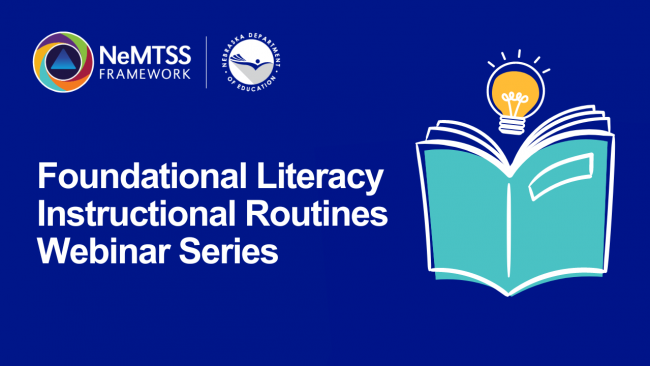Nebraska’s Multi-tiered System of Support (NeMTSS) empowers schools to support and prepare all students for success by systematically delivering a range of high-quality instruction tailored to meet their needs.
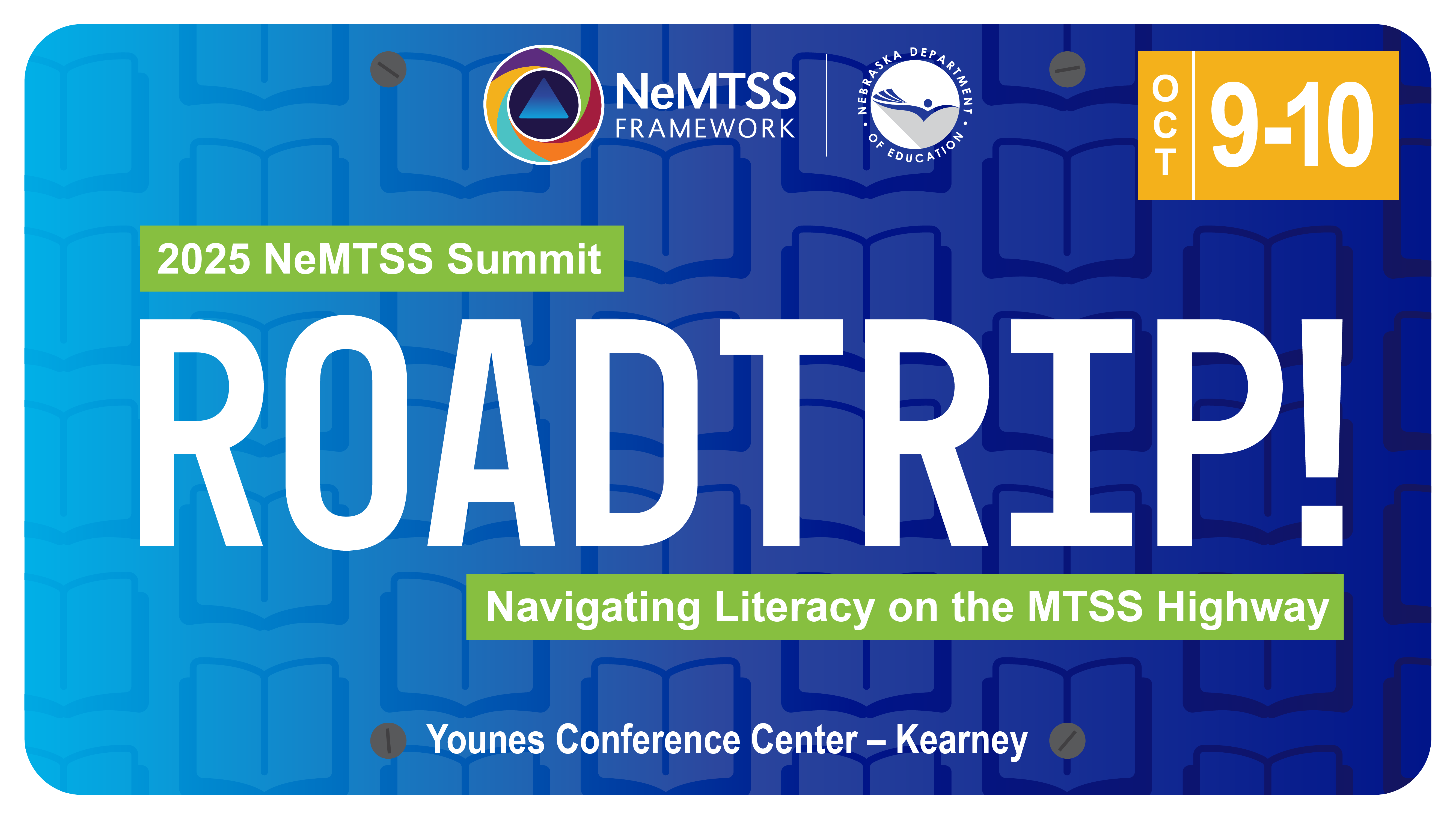
2025 NeMTSS Summit
The Nebraska Department of Education’s 2025 Nebraska MTSS Summit took educators on a journey through “Road Trip! Navigating Literacy on the MTSS Highway.”
Coherence at Every Level
The 2023 NeMTSS Framework is now available. The revised framework is designed to ensure every student across Nebraska has access to learning experiences that enhance their educational outcomes.
Latest News
What is NeMTSS?
NeMTSS is a framework designed to guide continuous improvement and ensure whole child support is provided to every student, allowing them the opportunity to enhance their educational outcomes.
Why NeMTSS?
As a continuous improvement process, NeMTSS focuses efforts and support for the whole child approach to address the needs of students, including academic, social, emotional, behavioral, physical and environmental. NeMTSS is purposely coherent with AQuESTT, Nebraska’s Accountability for Quality Education System Today and Tomorrow. This coherence aims to improve educational efforts that support improved outcomes for both students and adults.
“We value our partnership with the Nebraska MTSS Implementation Support Team and are committed to learning from and with our school districts to meet the changing, and sometimes challenging, needs of students. Through ongoing collaboration, communication and guidance, we are confident our schools are on the right path.”
Amy Mundil, Teaching and Learning Specialist, ESU 1
“We have built a positive relationship with the NeMTSS team based on respect, trust, loyalty and integrity. As result of working with the NeMTSS team, we have become better, and together, we will accomplish great things.”
Dr. Ron Hanson, Retired Superintendent, North Platte School District
“As we began helping schools develop their intervention process, the NeMTSS team was a huge help! They gave us the support necessary to build a system that supports all students!”
Dr. Kelly Georgious, Professional Developer, ESU 2
“The NeMTSS team’s support has been invaluable. It has fostered a greater focus on collaboration between general education and special education — aligning resources, braiding funding and providing high-quality professional development to ensure success for all learners.”
Jadie Beam, Director of Professional Development and Laura Barret, Director of Special Education, ESU 13
“The NeMTSS team has been a valuable resource for Westside Community Schools, as we have worked to strengthen our core curriculum and instructional practices. The consultation, collaboration and guidance provided has made a meaningful difference in both teaching and learning in District 66.”

